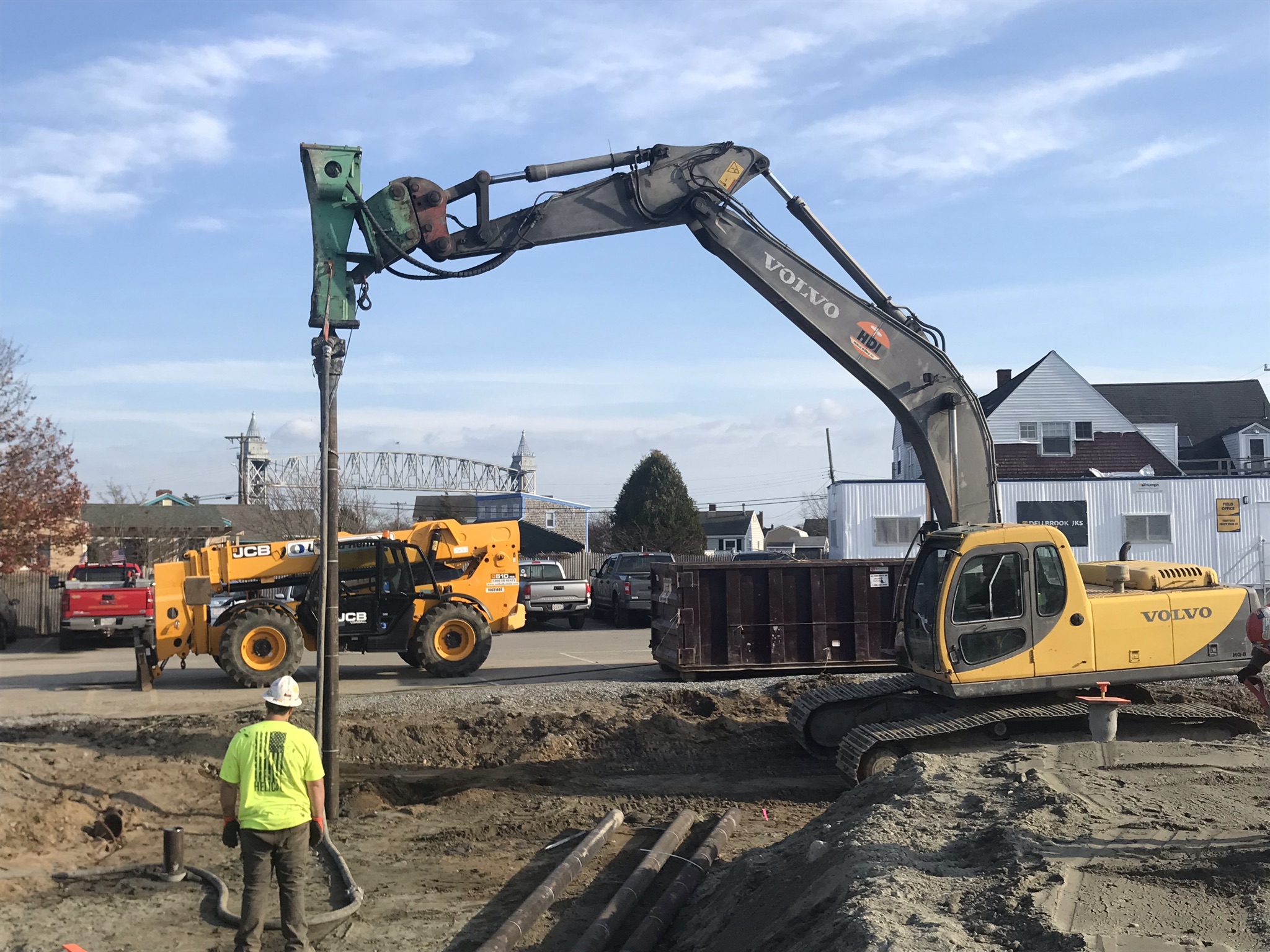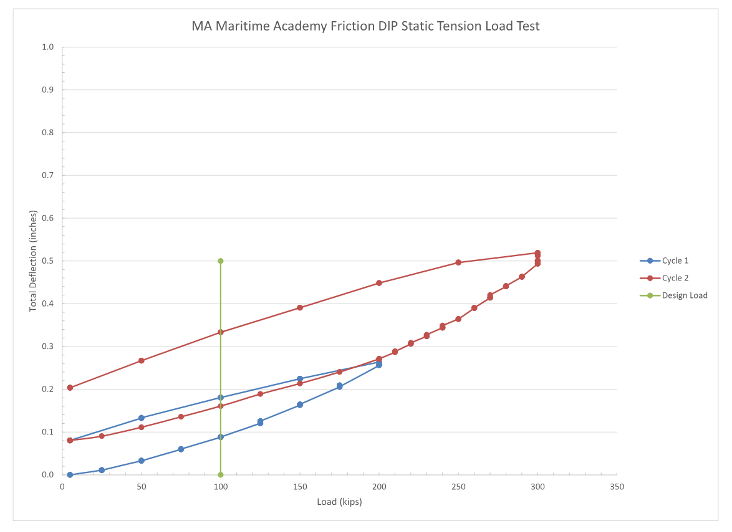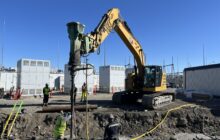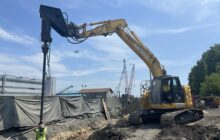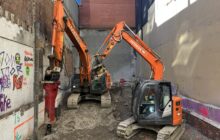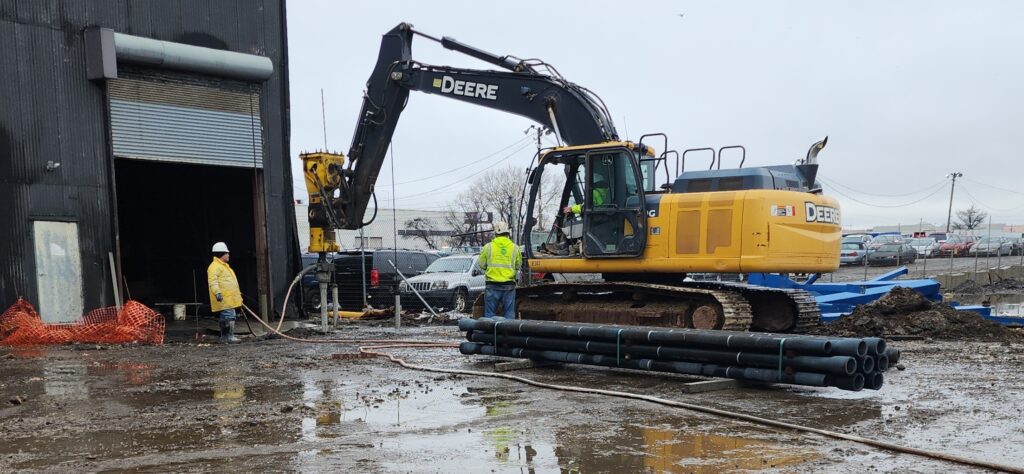Ductile Iron Piles provided a deep foundation solution to resist compression loads and lateral loads under a storm surge (scour) event.
Project Description:
New housing for MMA Cadets involved the construction of a 3-story, 30,700 square foot facility on the edge of the campus. Structural loads were designed to bear on a foundation system consisting of pile caps, grade beams and structural slabs. Besides support of building loads, the foundation design had to consider scour effects due to the proximity of the building to the Cape Cod Canal.
Geotechnical Conditions:
Soil conditions consisted of loose to medium dense granular fill extending to 7 feet below grade. A 4-foot-thick layer of peat/organics was encountered beneath the fill in the eastern half of the site. Below the fill and organics, a stratum of medium dense to dense marine sand and gravel was encountered across the site. Groundwater was approximately 6 feet below grade.
Project Challenges:
Provide deep foundation solution to resist compression loads and lateral loads under a storm surge (scour) event.
Advantages
- Rapid installation
- Cost-savings compared with PIFs
- Low vibration installation to minimize impacts on neighbors
- Solution to resist scour
- Demonstrated capacity through load testing
Design and Construction Solution
The presence of unsuitable soils (fill and organic/peat) coupled with the need for resistance to storm surge and scour drove the need for deep foundations to support the new building. Traditional Pressure Injected Footings (PIFs) were originally planned for foundation support. A total of 108 PIFs were designed with a compression capacity of 50 tons and a lateral capacity of 2 tons. After budget review for the PIFs revealed a high cost and slow duration, the project team began considering other foundation options.
Helical Drilling proposed an exterior grouted Ductile Iron Pile (DIP) as a 1:1 replacement of the PIFs. The DIPs featured a Series 170/7.5 pile section installed with a 270 mm (10.6 inch) diameter grout shoe. Piles were designed to extend through the fill and organics and terminate in the marine sand with a length on the order of 25 to 28 feet. The grouted displacement DIPs were designed to provide the same capacity as the PIFs, but at a substantially reduced cost and shorter duration. Engineers at Helical Drilling worked closely with the geotechnical engineers to verify the axial and lateral design approach and confirm the DIPs would meet performance requirements.
The Ductile Iron Pile option was selected as an alternative to the PIFs. A 25-foot long test pile including a high strength center bar was installed to verify the axial capacity of the pile. Since the capacity was designed to generate axial resistance through grout-to-grout bonding, a tension test was performed. The pile was tested up to 200% of the design load (100 tons) where a deflection of only 0.26 inches was recorded. The test was then rebounded with only .08 inches of permanent deflection. The load was then reapplied and incrementally increased to 150 tons (300% of the design load) to document performance. Results showed only 0.52 inches of movement at the 300% loading. Despite the Ductile Iron Pile itself performing well at the high loads, the test was unloaded due to the limitation of structural capacity from the center bar providing the tension reaction. Strain gauges installed within the pile confirmed that more than 225% of the design load was transferred below the fill and organics into the bond zone during the test indicating exceptional performance.
With the successful load test completed, the crew installed the 108 Ductile Iron Piles in 7 working days. Despite difficult driving in the dense marine sand, the DIP installation was considerably faster than the original PIF schedule. In addition, vibration monitoring around the site showed minimal vibrations which helped limit the impact on the adjacent residential neighborhood.
Project Team Members
DIP Design/Build Partner: Helical Drilling, Inc.
Geotechnical Engineer: McPhail Associates, LLC
General Contractor: Dellbrook | JKS
Structural Engineer: Foley Buhl Roberts & Associates, Inc.

